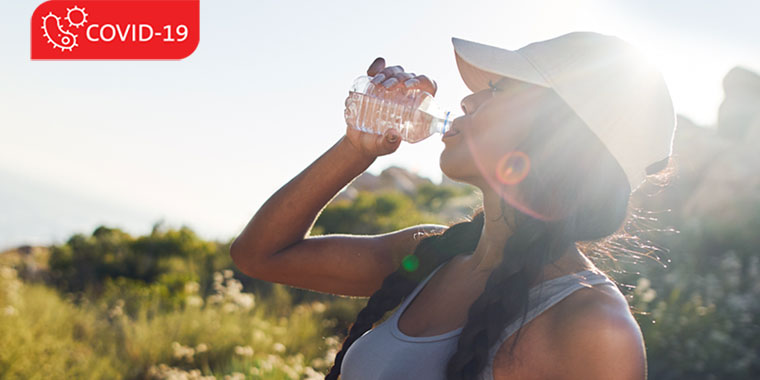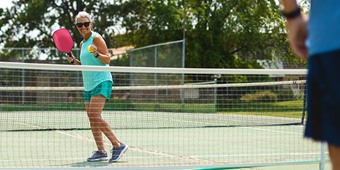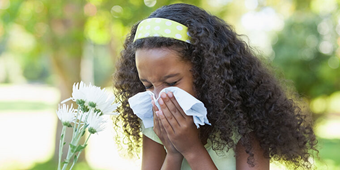Your Pre-Activity Checklist: Water, Water, Water

Answer a few questions and we'll provide you with a list of primary care providers that best fit your needs.
Exercising safely in the heat and humidity requires a well-hydrated body. And now that COVID-19 has shuttered drinking fountains and sports teams’ drink stations, staying hydrated means planning ahead. Premier Health Now asked Joshua Ordway, MD, with Franklin Family Practice to share his advice. As a frequent marathoner, he has plenty of experience!
Whether you’re gardening, hiking, running, or practicing for a high school sport, every cell in your body works better when you’re fully hydrated, he says. “Ideally you should begin hydrating with frequent sips of water as soon as you wake up on any day that will include physical exertion in the heat and humidity. When you’re ready to begin your activity, if your urine is pale yellow or clear, you know you’ve done your job; you’re adequately hydrated.”
But It Doesn’t Stop There
“During exercise, you’ll lose fluid when you sweat. You also expel water droplets while breathing, and at an accelerated rate during physical activity, thereby losing additional fluid,” says Dr. Ordway. “That’s why it’s crucial to continue replenishing your body ideally every 30 minutes with more water, or with a sports drink if you’re sweating profusely.” Avoid fluids that contain caffeine, including most sodas, as they can cause you to urinate more than usual.
You’ll know you’re dehydrated if your mouth gets dry, you become thirsty, or your body stops sweating. “Sweating is important,” Dr. Ordway cautions. “It cools your body. If you’ve reached the point where your body is no longer sweating, you need to call it quits immediately and get hydrated, or you’ll quickly overheat, which can lead to heat stroke.”
How Much Fluid Is Enough?
“It really depends on your height, weight, and what exercise you’ll be doing,” says Dr. Ordway. “Generally, the recommendation is 12 to 15 cups of water per day without doing any physical activity. You’ll want to add another three to four cups an hour when you’re exercising in the heat.” Eating watermelon and other juicy fruits is another way to hydrate. “If the fruit is so juicy it runs down your chin, that’s a good one!” he adds.
Plan ahead by bringing plenty of fluids to any workout or vigorous activity. And when your workout is complete, drink some more to replenish what you lost and finish strong.
Answer a few questions and we'll provide you with a list of primary care providers that best fit your needs.
Source: Joshua Ordway, MD, Franklin Family Practice; Familydoctor.org





